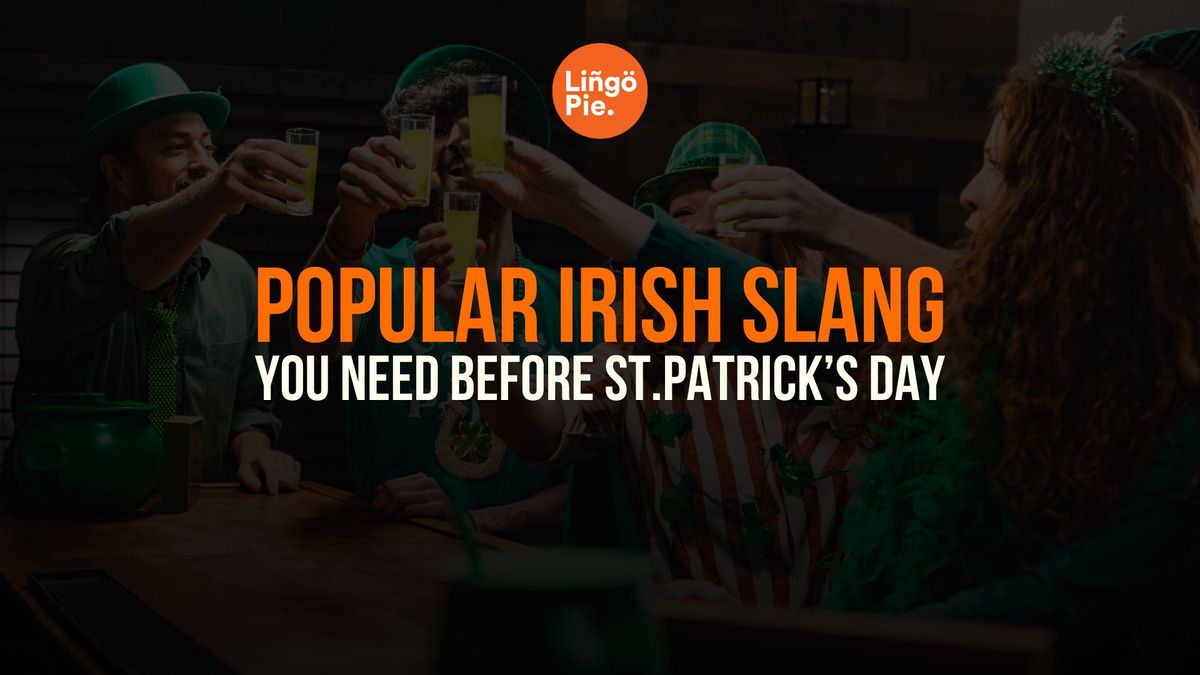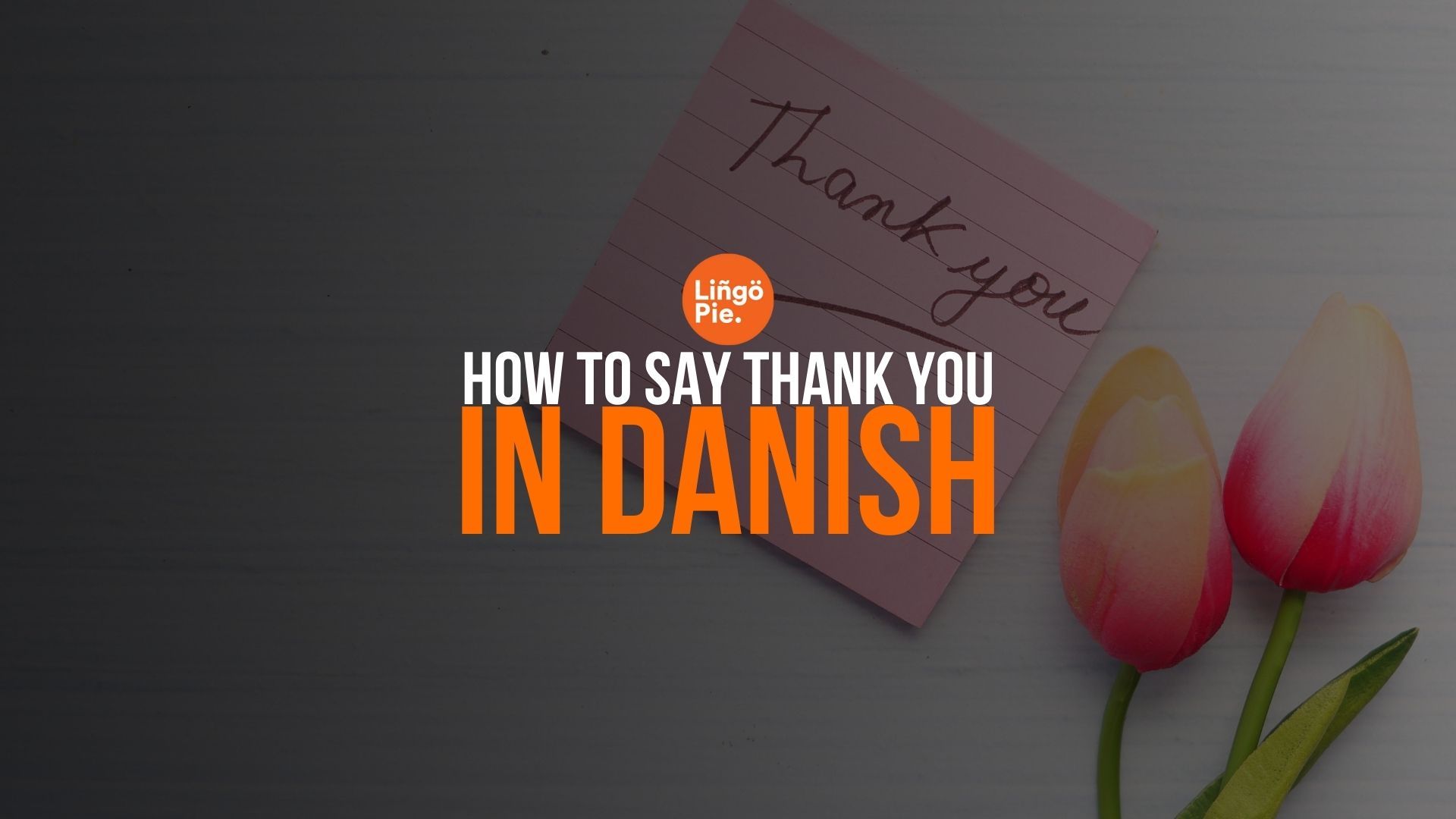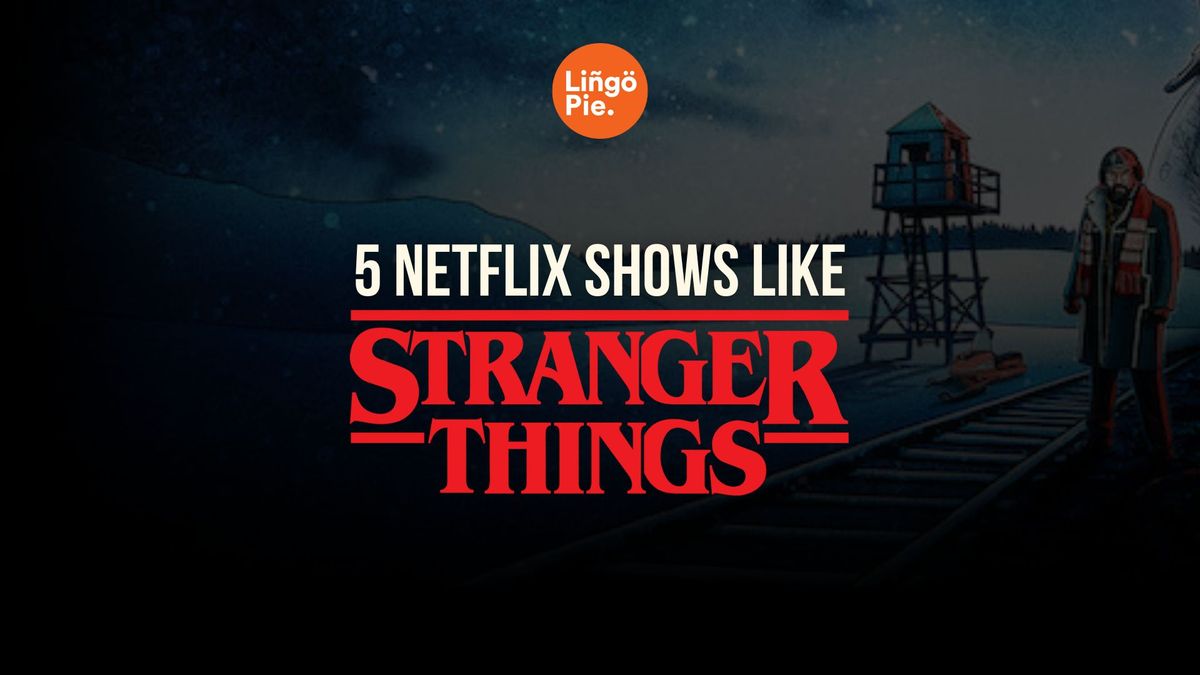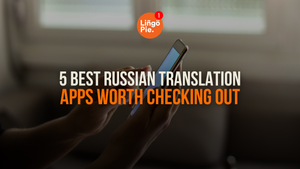Not to state the obvious, but there's something wildly satisfying about finally getting what Colin Farrell means when he calls something "deadly" in an interview. Thanks to shows like "The Outlander" and movies like "The Banshees of Inisherin," Irish slang has sneaked its way into our watch parties – and honestly, understanding it makes everything ten times better.
So before you start your next Irish movie night (or rewatch "Derry Girls" for the third time, no judgment here), let's get you sorted with the slang that'll turn those "wait, what did they just say?" moments into "oh yeah, I totally get that" ones.
- Language Reactor Review: Why Lingopie Is The Better Choice for Language Learning
- 8 Best Chrome Extensions for Language Learning
- 6 Best FREE Korean Learning Websites For Beginners

Irish Slang For St. Patrick's Day
St. Patrick's Day is almost here, and you know what that means: an all-green parade and a massive celebration of Irish spirit! This festive occasion gathers friends, families, and communities to honor Irish culture with traditional music, hearty food, and plenty of laughter. Though the day originated in Ireland, many of the biggest events take place in America, turning cities into centers of cheer and shared pride.
Want to join in on the fun? If yes, then be sure to use these uniquely Irish slang words.
| Irish Slang | Meaning/Usage |
|---|---|
| Paddy’s Day | An informal term for St. Patrick’s Day that gives your greeting an authentic touch. |
| Ar meisce | The Gaeilge word for “drunk,” describing that state after a few pints. |
| Craic | A term for fun or enjoyment; often used as a friendly greeting. |
| Céilí | A dance party featuring Irish jigs and reels. |
| Naggins / Shoulders | Slang referring to the size of spirit bottles, similar to what some call “mickeys.” |
| Minerals | Colloquial for soda or fizzy drinks used as mixers. |
| Bag of cans | Beer in cans carried in a bag for celebrations. |
| Airgead | The Irish word for money. |

St. Patrick's Day Phrases
St. Patrick's Day greetings can set the tone for a fun, festive atmosphere. A simple greeting or phrase makes your wishes feel genuine and lively, whether you're sending a message to friends or sharing a toast at a gathering.
- Top o' the morning to you!
- Erin go Bragh!
- May the luck of the Irish be with you!
- Happy St. Patrick's Day!
- Sláinte!
- Have a grand Paddy's Day!
12 Most Popular Irish Slang Words And Phrases
After all the celebrations, one thing is clear: You can continue to show support for the Irish language by learning its popular slang words. In this section, I rounded up the 12 most used ones that everyone needs to know!
Craic
Craic is the ultimate Irish word for fun, news, and entertainment rolled into one. When someone asks "What's the craic?" they're simply saying "What's up?" or "What's happening?"
Black Stuff
When Irish characters talk about "the black stuff," they're talking about Guinness – simple as that. It's the loving nickname for Ireland's most famous stout, and you'll catch this phrase in pretty much any pub scene in Irish cinema.
Dryshite
Nobody wants to be called a dryshite – it's what Irish folks call someone who's totally boring or no fun at all. You know that one friend who never wants to go out and complains about everything? Classic dryshite behavior.
Arseways
When something goes completely wrong or turns into a total mess, the Irish will tell you it's gone "arseways." It's that perfect word for when everything's fallen apart – like your perfectly planned night out turning into chaos, or a simple task becoming weirdly complicated.
Langer
Most commonly, it's used to call someone a fool or an idiot, but it can also mean someone who's drunk (and probably acting like a fool anyway).

Gaff
Skip the fancy talk – a gaff is just someone's house or apartment. Next time you're watching "Normal People," you'll catch Connell and Marianne talking about heading back to someone's gaff when they really just mean going home. It's that simple replacement for "my place" that somehow sounds way cooler in an Irish accent.
Gas
When Irish folks call something "gas," they're not talking about fuel. It means something's absolutely hilarious or brilliant. You'll hear characters in "Derry Girls" describing wild situations as "gas craic," which basically means it's prime entertainment. Think of it as their version of "that's so funny" but with more punch.
Grand
"Grand" in Ireland has nothing to do with being fancy or expensive. Instead, it's the most versatile way of saying something's fine or okay. In "The Banshees of Inisherin," you'll hear it constantly – "Ah sure, it's grand" – meaning everything's alright. Not amazing, not terrible, just... grand.

C’mere to me
This isn't actually asking someone to come closer – it's more like saying "listen up" or "wait till you hear this." Picture every gossipy scene in an Irish movie starting with someone saying "C'mere to me" before spilling the latest news. It's basically the Irish equivalent of "you won't believe this."
G’wan
Short for "go on," this little phrase packs a punch. It can mean anything from "are you serious?" to "please continue" or even "get out of here!" Context is everything – in "Father Ted," you'll hear it used in about five different ways in the same scene, each time meaning something slightly different.
Give It A Lash
When someone tells you to "give it a lash," they're saying go for it, try it out, or just do your best. It's that encouraging phrase you'll hear in Irish sports movies right before someone attempts something they're not quite sure about. Think of it as Ireland's version of "give it a shot."
Suckin' Diesel
When someone says you're suckin' diesel, they're telling you you're doing great or things are going really well. It's like saying "now you're making progress" but make it Irish.
Other Irish Slang Words And Phrases
Just when you think you've got it figured out, someone throws another phrase at you that leaves your head spinning. Here's a collection of other Irish slang words and phrases that might catch you off guard during your Irish movie marathon (and trust me, they will):
| Irish Slang | Meaning |
|---|---|
| Acting the maggot | Messing around or being annoying |
| Banjaxed | Broken or extremely tired |
| Cailín | Girl or young woman |
| Coddin' ya | Just kidding or messing with you |
| Culchie/Bogger | Someone from rural Ireland (outside Dublin) |
| Eejit | An idiot (but somehow more endearing) |
| Faffing | Wasting time or procrastinating |
| Knackered | Exhausted or worn out |
| Manky | Dirty or disgusting |
| Oul fella | Dad or an older man |
| Scarlet | Embarrassed ("I'm scarlet for you") |
| Scuttered | Very drunk |
| Sound | Good, decent, or reliable person |
| Wan | A woman or girl (usually "yer wan" meaning "that girl") |
| Yoke | A thing when you can't remember its name |
Learn Slang With Lingopie
Slang is what makes any language come alive, and Irish English has some of the most colorful expressions you'll ever hear. But hey, why stop at Irish?
- 24+ Easy Cuban Slang Words That Only Locals Understand
- 26+ Easy Guatemalan Slang Every Expat Should Know
- 21 Best Colombian Slang Words to Learn This Year
If you're loving how these phrases add extra flavor to your movie-watching experience, you should check out Lingopie. We've got thousands of shows and movies in different languages, complete with interactive subtitles that help you catch all those unique expressions and slang that make each language special.
Ready to give it a go? Your next language adventure is just a click away.
Frequently Asked Questions
Why do Irish people say "like" at the end of sentences?
Adding "like" to the end of sentences isn't just a random habit – it's actually a way Irish English speakers soften their statements or check if others agree with them. Think of it as the Irish version of the Canadian "eh" or the British "innit." It comes from the Irish language's sentence structure, where important bits often come at the end, and it's stuck around in Irish English as a way to make conversations flow more naturally.
What's the difference between Irish slang and Scottish slang?
While Irish and Scottish slang might sound similar to outsiders (thanks to their shared Gaelic roots), they're actually quite different. Irish slang tends to draw more from the Irish (Gaeilge) language and culture, giving us words like "craic" and "cailín." Scottish slang, on the other hand, comes from Scots and Scottish Gaelic, with its own unique words like "ken" (know) and "wee" (small). Each has its own distinct flavor and cultural background.
Is Irish slang the same throughout the country?
Not at all! Irish slang varies significantly depending on whether you're in Dublin, Cork, Belfast, or anywhere else on the island. Dublin has its own urban vocabulary, Cork folks have their "langer," and northern Irish speakers might throw in completely different phrases. It's like how American slang changes from New York to California – each region adds its own special touch to the language.
Why do some Irish people say "yous" instead of "you"?
"Yous" (or "yiz" in some areas) fills a gap in English that Irish people noticed needed filling – a proper plural form of "you." Standard English doesn't have a specific word for addressing multiple people (unless you count Southern American "y'all"), so Irish English created one. It's actually pretty practical when you think about it: "yous" makes it clear whether someone's talking to one person or a group.
Are Irish movies subtitled in English-speaking countries?
Many Irish movies and TV shows, especially those with strong regional accents or heavy use of slang, often come with subtitles even in English-speaking countries. It's not just about understanding the words – Irish English has its own rhythm, speed, and expressions that can catch even native English speakers off guard. Take "Derry Girls" or "The Young Offenders" – both have subtitles available because sometimes the slang and accents can be a bit tricky to follow.







![Is Lingopie Free? Plans, Pricing & Free Trial Guide [2026]](/blog/content/images/size/w300/2026/01/Is-Lingopie-Free.jpg)
![How To Gift Lingopie: One-Year vs Lifetime Subscription [GUIDE]](/blog/content/images/size/w300/2026/01/lingopie-gift-subscription.jpg)
![What is Lingopie? Complete Platform Guide [2026]](/blog/content/images/size/w300/2026/01/What-is-Lingopie.jpg)